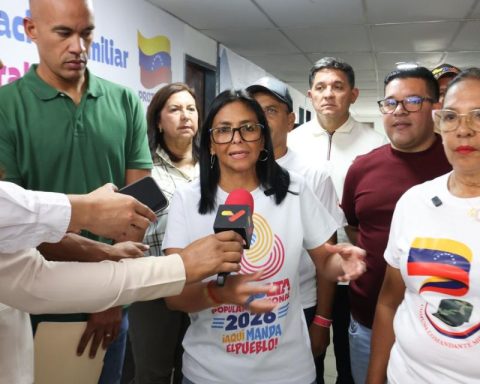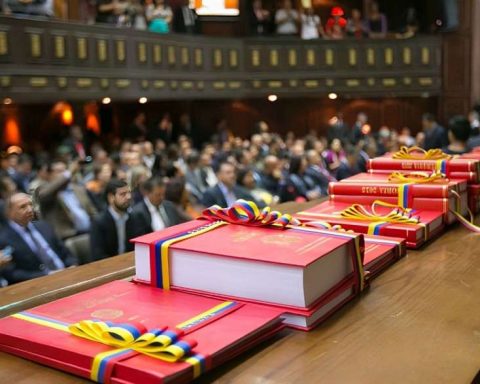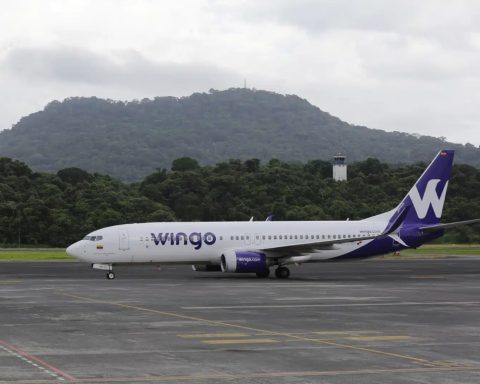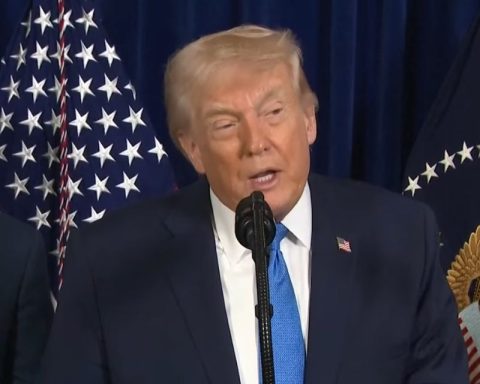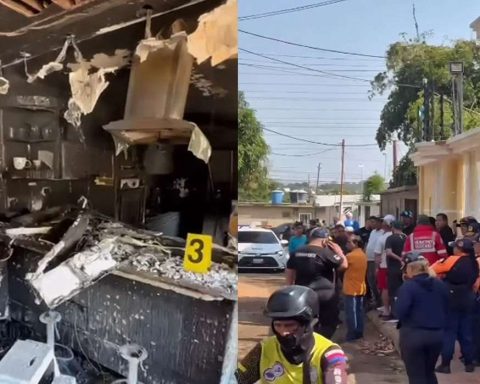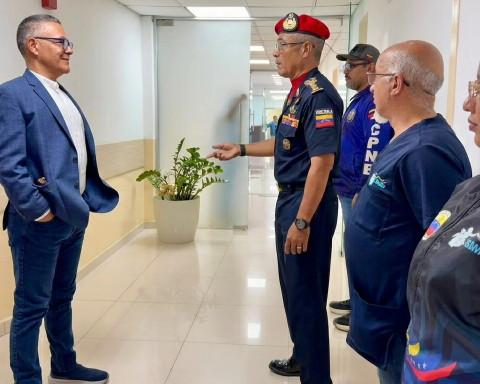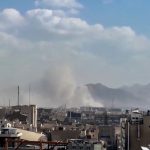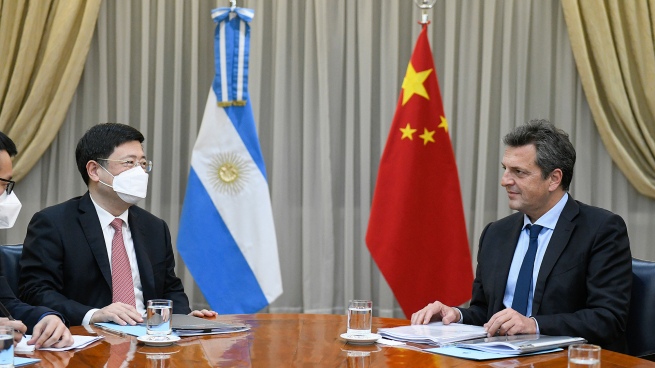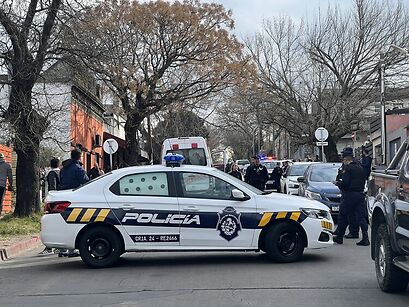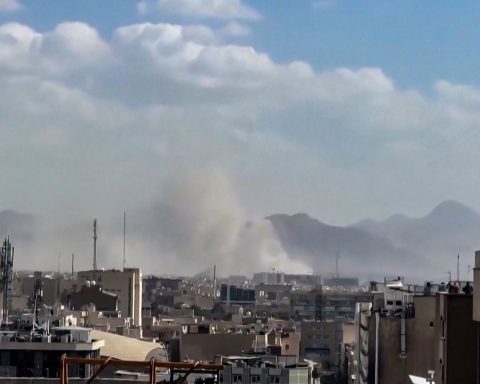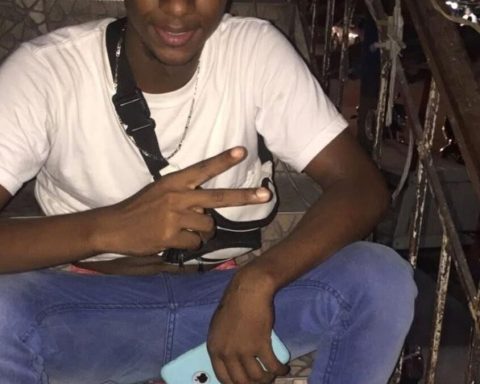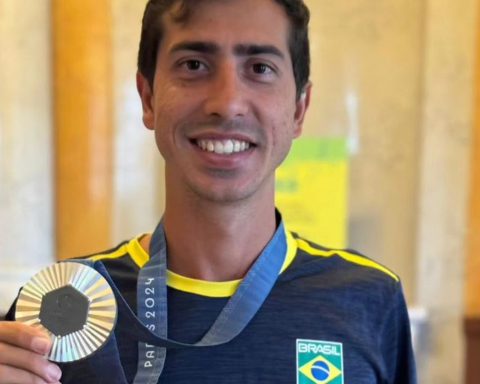The hijacking of the Boeing 747 300-M aircraft of the Venezuelan company Emtrasur is under the decision of Judge Federico Villena, with jurisdiction at the Ezeiza international airport, in the province of Buenos Aires, Argentina, where the aircraft rests.
To date, 12 members of the crew had already been authorized to leave Argentina, but the ruling was appealed by the prosecutor in the case, Cecilia Incardona, so the judge’s decision was put on hold, and according to the judge’s instructions Villena, four crew members of Iranian origin and three crew members of Venezuelan origin cannot leave Argentine soil, while the investigations and the judicial process take place, a press release refers.
Federal judge Federico Villena has been accused of climbing the Argentine justice system by building ties with the last governments of his country, from the government of Cristina Fernández and then with the government of Mauricio Macri.
Villena, according to the Buenos Aires media The nationcame to his current position through the support given to him by Silvia Majdalani, considered “the powerful ex-number 2 of intelligence at the time of Mauricio Macri,” the media reports, and also by favors of María Eugenia Vidal, who was governor of the Province of Buenos Aires from 2015 to 2019.
However, in 2019 the current deputy for Buenos Aires, María Eugenia Vidal, participated in operations to steal Venezuelan goods in Argentina, specifically at the Dock Sud docks, in the province of Buenos Aires.
Vidal violated the locks of the Venezuelan company Petrolera del Cono Sur SA (PCSA), a subsidiary of PDVSA, in charge of fuel distribution in the Río de la Plata and operator of a fuel distribution plant and several service stations.
In that same year Vidal implemented measures in favor of the “false government” of Juan Guaidó by supporting Elisa Trotta Gamus, pseudo-ambassador of the government faketo take goods from PCSA.
This is why Federico Villena has been accused of “zigzagging” in the politics of his country and has been at the center of several operations. He led a mega operation to arrest 22 former intelligence agents, whose procedure was questioned even by Argentine government figures in 2020.
According to The nationSince his rise to his position in 2015, Villena has “forged relationships with the entire political spectrum and, like many of his colleagues, with the intelligence services.”
Villena was accused in 2021 of “bad performance”, “arbitrariness” and “serious negligence” by federal prosecutor Cecilia Incardona; the head of the Attorney General’s Office against Narcocriminality (Procunar), Diego Iglesias; and the other Federal judge in Lomas de Zamora, Juan Pablo Augé.
In May of this year, just a month before the hijacking of Emtrasur’s Boeing 747 300-M, Villena was in the eye of the hurricane, under investigation by the authorities for “laundering” and being the talk of the media.
Likewise, the federal judge of Lomas de Zamora, Federico Villena, was being questioned for the purchase of a house that he would have declared at a lower price than the market price and financed with alleged simulated loans and sales of fictitious real estate. The magistrate was denounced and charged by the Office of the Attorney for Economic Crime and Money Laundering (Procelac), in charge of the prosecutor Diego Velasco.
The property that Villena acquired is located on Zuviría street, in Flores, Capital Federal. The judge bought it in October 2020. He listed it for 400 thousand US dollars, but its real price would be almost double, about 790 thousand dollars, as reported Clarion and ratified The nation some judicial sources.
JUDICIAL AND COMMUNICATION MANEUVER
The case of the Emtrasur plane, a subsidiary of the Venezuelan state company Conviasa, has had as its epicenter public statements made by Villena expressing suspicions and presumptions about the landing of the plane in Argentina and also about its crew.
In statements that could be considered incongruous and unfounded (because they are not subject to evidence), Villena has not kept any summary for the Venezuelan case. On the contrary, he has instigated the generation of opinion matrices in the media, indicating verbatim the words “terrorism”, “espionage”, “suspicion” and “doubts” about the plane and its crew.
Until now, after searching the aircraft and the crew’s telephone numbers, and reviewing the data and names of the crew, no Argentine police entity has discovered any evidence that refers to activities in favor of terrorism by the crew and the aircraft.
Villena considers himself an “anti-terrorist” activist. Regarding the case of the Emtrasur plane, he has alluded to the terrorist attacks against the Embassy of Israel in his country in the 1990s (AMIA case), creating a narrative link between those events and the present.
Villena alluded to one of the pilots, the Iranian Gholamreza Gashemi, who has the same name as a member of the Quds Forces -a division of Iran’s Islamic Revolutionary Guard Corps-, defined by the United States as Hezbollah instructors, but found that it is not the same person.
The arrival of the plane caused a media stir and the questioning of the opposition in Argentina, especially the Jewish community. Indeed, Israel has activated diplomatic spokespersons in Argentina and Paraguay, indicating its position in favor of the seizure of the plane for having previously flown under the Iranian flag.
However, despite Villena’s political ties, the judge is constantly pressured by the media and politicians, especially from the right in his country, and even by the Delegation of Argentine Israelite Associations (DAIA), the political arm of the Jewish community, who insist on the confiscation of the aircraft and have displayed all their influence on public opinion.
The complexity of the picture where the lines between the judicial, the political and the media are blurred suggests that Villena has managed to distract public opinion from the accusations of money laundering against him and at the expense of the Emtrasur case -which is at a critical point of scope geopolitical-, he could be building agreements and alliances with instances of economic and political power in his country to gain a foothold in his position and even climb the structure of the Argentine judiciary.
Such a probability has been fueled by opinion actors in Argentina and would be in full accordance with his background and record.
The opportunity is also formidable for Villena to ingratiate himself with US influence in Argentina, if he is to rule in favor of the request for confiscation of the aircraft issued recently by the Department of Justice of that country under pseudo-legal allegations. The possible overcompliance of Washington’s coercive measures would once again confirm that the blockade against Venezuela is still in place and does not seem to have any relief.
VTV/GG/EL

